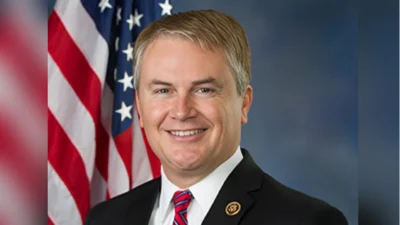Dear Mr. Hassan:
As the principal sponsor of the 1986 Amendments to the False Claims Act (FCA), I have witnessedthe FCA's remarkable success in bringing health care fraud to the attention of the federalgovernment. As you may know, the FCA establishes liability for contractors that commit fraud bysubmitting false or fraudulent claims for reimbursement to the federal government and permitswhistleblower suits.
According to a report released by Taxpayers Against Fraud, a national non-profit organizationfocused on enforcement of the FCA, the net recoveries to the federal government from civil healthcare fraud during the period from 1999-2003, amounted to $5.26 billion. While this remarkablereturn of taxpayer dollars is evidence that the FCA and other enforcement mechanisms continue towork in many important respects, I have watched with dismay as many of the leading companies inthe health care industry have been implicated in systematic, large-scale fraud, involving billions ofdollars.
While we have the best health care system in the world, a few bad actors can result in billions infraud and taint the perception of entire sectors of the health care field. Current recoveries mayrepresent just the tip of the iceberg and federal investigators and/or whistleblowers are foreverchasing after the next fraudulent scheme.
Many of the companies that have settled fraud enforcement matters with the Department of Health& Human Services (HHS), Office of Inspector General (OIG), are required to maintain ethics andcompliance programs. The HHS-OIG has provided model compliance program guidance to someproviders in the health care community, including final guidance for hospitals and draft guidance forthe pharmaceutical manufacturers. In its draft guidance to the pharmaceutical manufacturers, the OIGsays that, among other elements, every effective compliance program should include:
[A]s a first step, a good faith and meaningful commitment on the part of the company's managementwill substantially contribute to [a compliance] program's successful implementation.... [T]hatcommitment should filter down through management to every employee and contractor of thepharmaceutical manufacturer, as applicable for the particular individual. At a minimum, acomprehensive compliance program should include... [t]he development and distribution of writtenstandards of conduct, as well as written policies, procedures and protocols that verbalize thecompany's commitment to compliance (e.g., by including adherence to the compliance program asan element in evaluating management and employees) and address specific areas of potential fraudand abuse, such as the reporting of pricing and rebate information to the Federal health careprograms, and sales and marketing practices.
While your company may or may not be subject to a mandatory compliance program, I ask that youtake seriously the need to articulate written standards of corporate conduct and educate employeesabout health care fraud. I can think of no better way to send your employees the message that yourcompany aims to comply with the law and will not tolerate fraudulent activity than to arm them withknowledge about the FCA and other health care enforcement mechanisms.
Creating awareness among your company's employees that they may file suit under the FCA wouldseem to be a step in the right direction. Please advise whether your company would voluntarilyprovide basic information about the FCA in some meaningful way to your employees.
As Chairman of the Senate Committee on Finance, I request that you respond by Aug. 16, 2004.Thank you in advance for promptly complying with this request.
Sincerely,
Charles E. Grassley Chairman
Source: Ranking Member’s News








